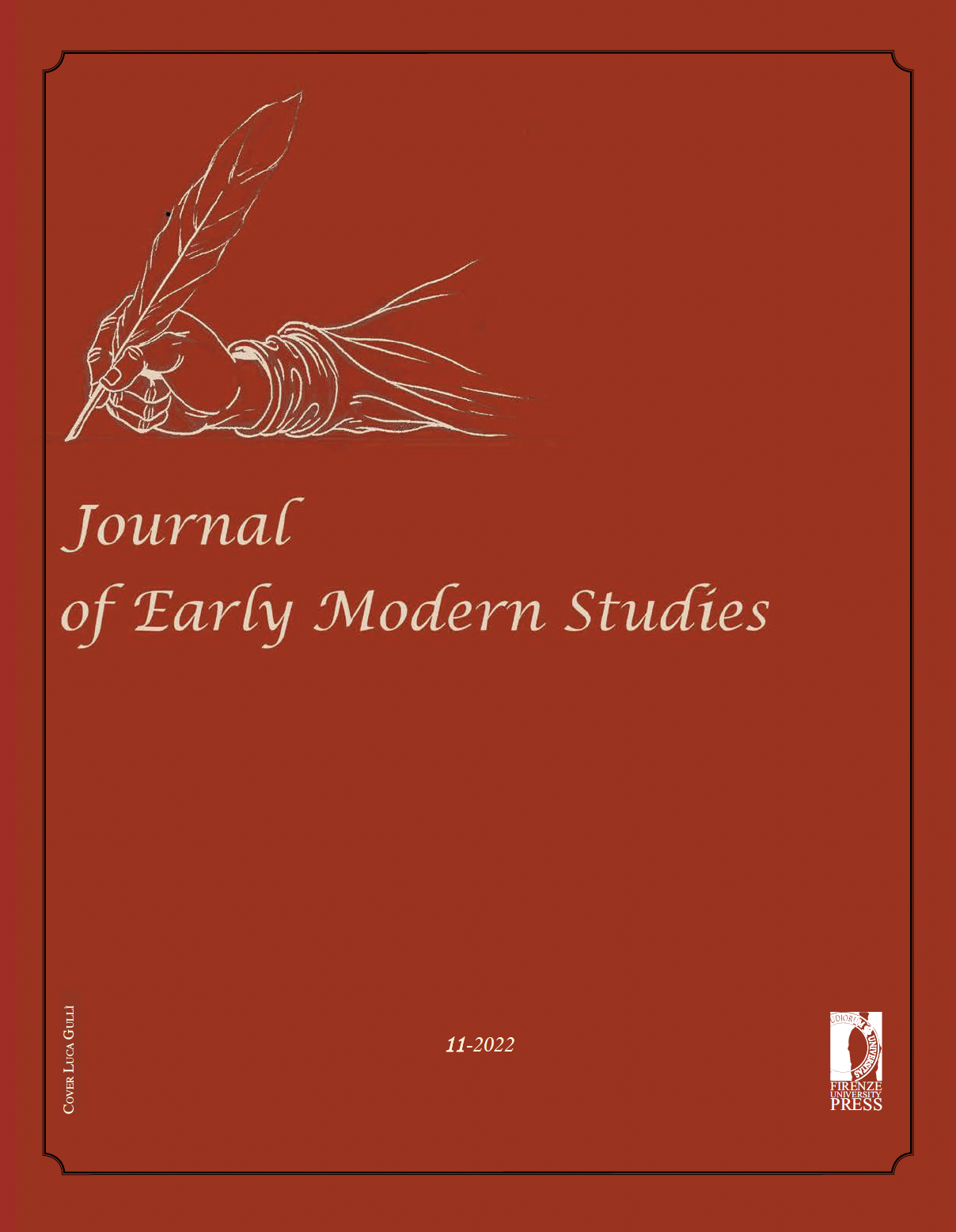Published 2022-03-24
Keywords
- James VI/I,
- John Stewart of Baldynneis,
- Ludovico Ariosto,
- Orlando Furioso,
- Philippe Desportes
How to Cite
Abstract
The article discusses John Stewart of Baldynneis’ version of Ludovico Ariosto’s Orlando Furioso as a case study for early modern indirect translation. Written in the 1580s, this translation precedes John Harington’s, and was composed at the court of James VI of Scotland. The young king had promoted a vernacular revival through a group of poets, translators and musicians; he himself translated a number of works by Guillaume de Salluste Du Bartas, such as L’Uranie, while Thomas Hudson translated another work by Du Bartas, La Judith. In this perspective, a translation of an Italian epic poem might seem to run counter to the prevailing fashion at court; but this translation owes much to intermediary French versions, such as Philippe Desportes’ Roland Furieux and Angelique. My analysis proceeds through the examination of individual passages that reveal the interplay of original text, intermediary translations, and final version.


